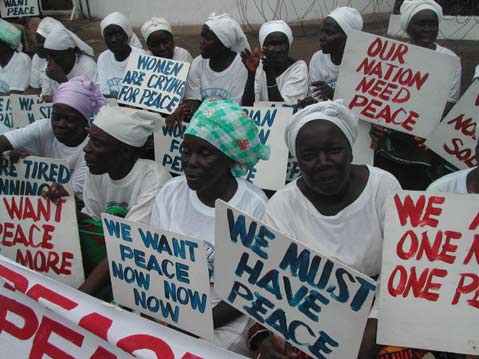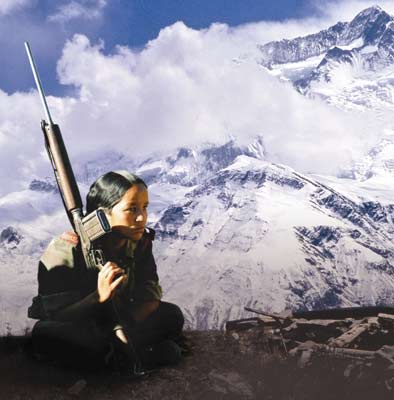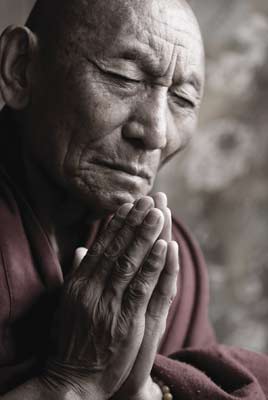Justice for None?
UCSB Presents the 4th Annual Human Rights Film Festival

Blessed be the day when there’s no need for a film festival to shine a light on the plight for human rights across the world. Unfortunately, that day seems as far away as ever, as war and oppression continue to taint the modern age. So until we enter that golden era, it’s the job of every responsible citizen to learn of yesterday’s transgressions-so we don’t repeat them-and stay abreast of today’s terrors, in hopes of doing what we can to end them.
UCSB’s fourth annual Human Rights Film Festival provides the perfect platform to do just that. This year, the slate of six films-which screen at Campbell Hall on Tuesday, Wednesday, and Thursday, May 26-28-feature geopolitical conflicts old and new. But you needn’t be a justice junky to enjoy, since all entries manage to convey intensely personal stories that should captivate any movie-goer.
It kicks off on Tuesday with The Reckoning: The Battle for the International Criminal Court (May 26, 7pm, 100 minutes), a fitting starter course because the ICC was created in 1998 with the intent of prosecuting the various human rights violations that go on unpunished. The documentary follows the development of the court and its investigative wing, which issues the first arrest warrants in 2005 for Joseph Kony and other leaders of his Lord’s Resistance Army, which has terrorized Northern Uganda for decades. In subsequent cases, from Colombian paramilitary abuses and the mess that is the Congo to the targeting of Sudan’s government, the film shows the challenges and limits of the court-made more difficult because the United States, and the countries we support with money and guns, has not yet signed on-all the time giving insightful behind-the-scenes footage and interviews. Filmmaker Pamela Yates will be in attendance to discuss the film following the screening.
Although the horrors of his reign came far before the creation of the ICC, General Augusto Pinochet would certainly have caught the court’s attention for his iron-fisted ruling of Chile. But rather than dwell too long on those atrocities, Peter Raymount’s A Promise to the Dead: The Exile Journey of Ariel Dorfman (May 26, 9pm, 92 minutes) focuses on the very personal saga of the former cultural attache to President Salvador Allende, whom Pinochet ousted and killed. An acclaimed playwright and author, Dorfman-writer of both the 1971 socialist tome How to Read Donald Duck and the 1994 Roman Polanski film Death and the Maiden-epitomizes the plight of the exile, and brings the viewer along on his journey through Chile’s tumultuous past. He shares his story openly and vibrantly, and gives a much needed history lesson on an easily forgotten South American era.

Too soon to be forgotten but too obscure to be noted by most, the ongoing battle for control of Nepal is the subject of Wednesday’s first film, The Sari Soldiers (May 27, 7pm, 90 minutes), which follows six women on distinct sides of the Himalayan country’s showdown between a power-hungry king (who came to rule in June 2001 after his family’s massacre), idealistic Maoist rebels, and everyone in between. Director Julie Bridgham introduces us to Devi, who speaks out against the murder and rape of her 18-year-old niece by royal soldiers, only to have her 15-year-old daughter “disappear”; Kranti, who seeks freedom for women as a Maoist commander; Rajani, a med student who joins the royal army to help her country; Krishna, a king supporter who protects her village from marauding Maoists; Ram Kumari, a student protest leader in Kathmandu; and Mandira, an attorney who travels the countryside to investigate allegations of human rights abuse. The combined portrait shows that there’s not one right way to think about Nepal, and all sides are guilty of something-in a sense, a microcosm for the rest of the planet.
The influence of women in geopolitics is also on display in Pray the Devil Back to Hell (May 27, 9pm, 72 minutes), Virginia Reticker’s award-winning doc on the struggle for peace in Liberia, the West African nation that was founded in the 1840s by American slaves, who then oppressed the resident ethnic tribes. That all fell apart during a 1980 coup and a civil war in 1989, which eventually brought a warlord named Charles Taylor to power. More civil wars ensued, and by 2002, more than 200,000 people were dead and 1.3 million displaced. Fighting began again, but this time, a group of both Christian and Muslim women banded together to call for peace. Their country-jumping plight-which included sit-ins and stopping sex with their husbands-pushed the country into peace talks, and some semblance of harmony resulted.
Few places on the planet have been seeking some form of harmony as long as Kashmir, the region in northern India and Pakistan that’s been a crossroads of religion, language, and culture for time eternal. Today, many consider the region a ticking time-bomb-complete with nuclear implications and Islamic terrorists-and Thursday’s first film, Project Kashmir (May 28, 7pm, 89 minutes), puts a human face on this conflict. Starring directors Senain Kheshgi and Geeta V. Patel, who will be in attendance at Campbell Hall, the doc analyzes each woman’s assessment of the situation, and they find their friendship challenged by each other’s religious and cultural biases. Groundbreaking footage reveals the village “crackdowns” conducted by the Indian army as well as the heart-rendering scene of a Hindu friend who returns to the rubble of her childhood home, which Muslim neighbors forced her family to flee.

Fleeing certainly was on the mind of Tibetan monk Palden Gyatso when the Chinese army raided his country in 1959 and put him under arrest. Makoto Sasa’s documentary Fire Under the Snow (May 28, 9pm, 75 minutes) shines a light on the torture-from being hung nude to losing his teeth due to electrical shock-which Gyatso had to endure during 33 years of imprisonment by the Chinese. Certain to kill most people, Gyatso survived and was released at age 61 in 1992, and a few years later made the perilous escape to Dharamsala, India. Since then, he’s been an integral part of the Free Tibet concerts and walks, and his story is one for the ages. This is required viewing for any who took the Dalai Lama’s recent UCSB visit to heart, for those who need a primer on the Tibet-China conflict, and for anyone who is inspired by a man who remains happy and peaceful despite much heartache and pain. It’s a fittingly inspirational film to end this year’s installment of UCSB’s Human Rights Film Festival.
4•1•1
UCSB’s fourth annual Human Rights Film Festival runs Tuesday-Thursday, May 26-28, at Campbell Hall, with two films showing each night. Call 893-3535 or visit artsandlectures.ucsb.edu.



